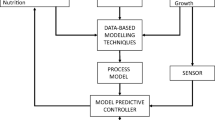Abstract
Timothy Hsiao attempts to defend industrial animal farming by arguing that it is not inherently cruel. We raise three main objections to his defense. First, his argument rests on a misunderstanding of the nature of cruelty. Second, his conclusion, though technically true, is so weak as to be of virtually no moral significance or interest. Third, his contention that animals lack moral standing, and thus that mistreating them is wrong only insofar as it makes one more disposed to mistreat other humans, is untenable on both philosophical and biological grounds.
Similar content being viewed by others
Notes
Compare Darwin (1859: 53–54): “I look at the term species, as one arbitrarily given for the sake of convenience to a set of individuals closely resembling each other, and that it does not essentially differ from the term variety, which is given to less distinct and more fluctuating forms. The term variety, again, in comparison with mere individual differences, is also applied arbitrarily, and for mere convenience sake”.
References
Barton, N. H., Briggs, D. E. G., Eisen, J. A., Goldstein, D. B., & Patel, N. H. (2007). Evolution. Cold Spring Harbor: CSHL Press.
Bekoff, M., & Pierce, J. (2009). Wild justice: The moral lives of animals. Chicago: University of Chicago Press.
Bruers, S. (2015). In defense of eating vegan. Journal of Agricultural and Environmental Ethics, 28(4), 705–717.
Craig, W., & Mangels, A. (2009). Position of the American Dietetic Association: Vegetarian diets. Journal of the American Dietetic Association, 109(7), 1266–1282.
Darwin, C. (1859). On the origin of species. London: John Murray.
Darwin, C. (1871). The descent of man, and selection in relation to sex. London: John Murray.
de Waal, F. B. M. (1996). Good natured: The origins of right and wrong in humans and other animals. Cambridge: Harvard University Press.
Erdős, L. (2015). Veganism versus meat-eating, and the myth of “root capacity”: A response to Hsiao. Journal of Agricultural and Environmental Ethics, 28(6), 1139–1144.
Futuyama, D. J. (2013). Evolution (3rd ed.). Sunderland, MA: Sinauer Associates.
Hsiao, T. (2015a). In defense of eating meat. Journal of Agricultural and Environmental Ethics, 28(2), 277–291.
Hsiao, T. (2015b). A carnivorous rejoinder to Bruers and Erdős. Journal of Agricultural and Environmental Ethics, 28(6), 1127–1238.
Hsiao, T. (2017). Industrial farming is not cruel to animals. Journal of Agricultural and Environmental Ethics, 30(1), 37–54.
Marino, L. (2017). Thinking chickens: A review of cognition, emotion, and behavior in the domestic chicken. Animal Cognition, 20(2), 127–147.
Marino, L., & Colvin, C. (2015). Thinking pigs: A comparative review of cognition, emotion, and personality in Sus domesticus. International Journal of Comparative Psychology, 28, 1–22.
Oderberg, D. S. (2007). Real essentialism. New York: Routledge.
Puryear, S. (2016). Sentience, rationality, and moral status: A further reply to Hsiao. Journal of Agricultural and Environmental Ethics, 29(4), 697–704.
Rachels, J. (1999). Created from animals: The moral implications of Darwinism. New York: Oxford University Press.
Regan, T. (1980). Cruelty, kindness, and unnecessary suffering. Philosophy, 55(214), 532–541.
Ridley, M. (2004). Evolution (3rd ed.). Oxford: Blackwell.
Rowlands, M. (2012). Can animals be moral?. New York: Oxford University Press.
Tanner, J. (2015). Clarifying the concept of cruelty: What makes cruelty to animals cruel. The Heythrop Journal, 56(5), 818–835.
Author information
Authors and Affiliations
Corresponding author
Rights and permissions
About this article
Cite this article
Puryear, S., Bruers, S. & Erdős, L. On a Failed Defense of Factory Farming. J Agric Environ Ethics 30, 311–323 (2017). https://doi.org/10.1007/s10806-017-9666-7
Accepted:
Published:
Issue Date:
DOI: https://doi.org/10.1007/s10806-017-9666-7



